Have you ever seen a spider spinning its web in your garden? Many people shiver at the thought of these eight-legged creatures. But are spiders good for gardens? You might be surprised by the answer.
Spiders play a special role in keeping plants healthy. They help control pests that can harm your flowers and veggies. Rather than being scary, these tiny hunters are actually helpful allies.
Imagine a garden buzzing with pests. Now, picture spiders quietly waiting to catch those pests. Isn’t it cool to think that your garden can thrive thanks to these little creatures?
In this article, we will explore why having spiders in your garden is a good idea. Get ready to discover the amazing benefits they bring!
Are Spiders Good For Gardens? Discover Their Benefits!
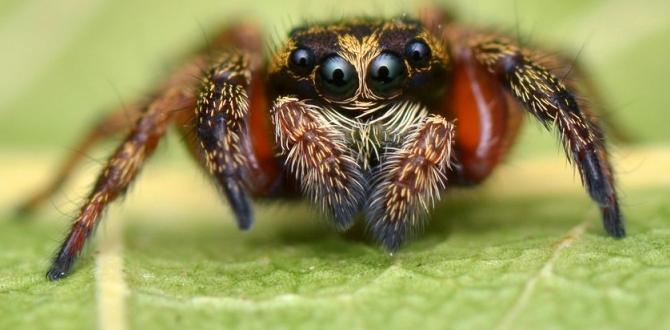
Are Spiders Good for Gardens?
Spiders are vital helpers in gardens. They eat many pests like aphids and caterpillars. Did you know that one spider can catch over 1,000 insects in a year? This makes them great for keeping gardens healthy and balanced. Instead of fearing them, consider the benefits they bring. With spiders around, you can reduce the need for harmful pesticides. So, next time you spot a spider, remember it might be your garden’s best friend!The Benefits of Spiders in Gardens
Natural pest control: how spiders manage harmful insects. The role of spiders in promoting garden biodiversity.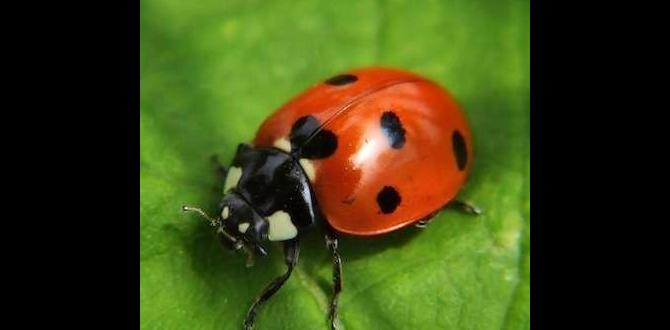
Spiders are small but mighty helpers in gardens. They are nature’s pest controllers. Spiders chase away harmful insects like aphids and flies. This keeps plants safe and healthy. Without spiders, gardens can become crowded with bugs. Biodiversity is also improved with spiders around. They help different species thrive. This balance is good for all the plants and creatures. So, spiders play a big role in creating a happy garden.
What pests do spiders control in gardens?
Spiders eat many pests like aphids, beetles, and caterpillars. They catch these insects in their webs. This helps plants stay strong and healthy.
Benefits of spiders in gardens:
- Natural pest control.
- Encourages different plant and animal species.
- Helps maintain balance in the ecosystem.
Common Types of Spiders Found in Gardens
Identification of beneficial spider species. Characteristics and habits of garden spiders.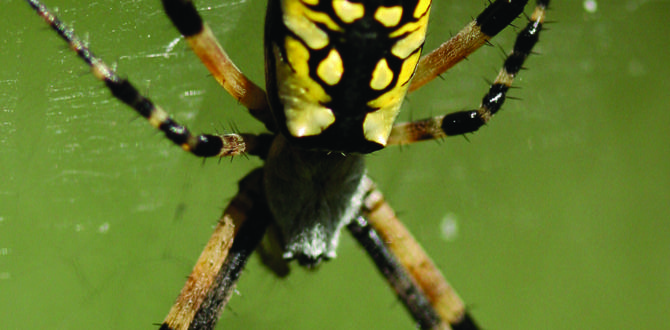
Some garden pals are not what you expect. Spiders are excellent at keeping the pesky bugs away! There are a few good guys: the orb-weaver, known for its round, spiral webs; the jumping spider, a tiny acrobat that leaps to catch its prey; and the sack spider, who makes cozy little homes. These spider buddies eat mosquitoes and flies, very handy if you don’t want your garden to turn into a bug buffet! Here’s a little table on them:
| Spider Type | Characteristics | Habits |
|---|---|---|
| Orb-Weaver | Big, round webs | Catches insects in its web |
| Jumping Spider | Small, colorful | Leaps to catch prey |
| Sack Spider | Looks like a tiny bag | Hides in silk “sacks” |
Garden spiders are humble heroes, making your plants happy. So, next time you see one, give a little wave! After all, they’re working hard while you’re busy enjoying your flowers.
How to Attract Spiders to Your Garden
Creating a spiderfriendly environment: plants and structures. Tips for minimizing chemical use in gardening.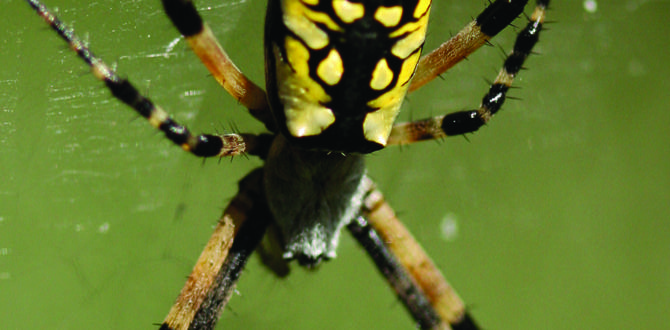
Spiders love gardens, and you can make yours a cozy home for them. Start by planting a variety of native plants. These attract insects, which are food for spiders. Include bushes and flowers that provide shelter. Also, avoid using harsh chemicals. They can harm spiders and other helpful bugs. Instead, try natural pest control methods.
- Use ladybugs for aphids.
- Set up traps for unwanted pests.
- Plant marigolds to keep certain bugs away.
By creating a friendly environment, you welcome these amazing creatures into your garden!
Why are spiders beneficial?
Spiders help control pests in your garden. They catch and eat many insects that can harm your plants.
Addressing Misconceptions About Spiders
Common fears around spiders and factual counterarguments. The importance of maintaining a balanced ecosystem.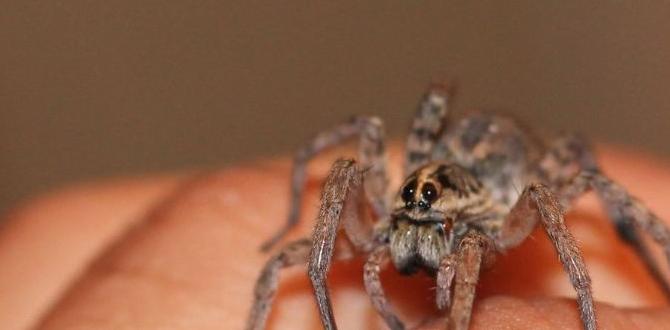
Many people fear spiders because they are creepy and crawly. However, most spiders are harmless and play important roles in gardens. They help keep harmful bugs like flies and aphids away. By having spiders in your garden, you support a healthy ecosystem. Here are some common beliefs and the facts that counter them:
- Spiders bite: Most spiders don’t bite humans and are not dangerous.
- Spiders spread diseases: Spiders actually control pests, reducing the spread of diseases.
Keeping spiders in your garden helps our environment, so let’s appreciate them!
Are Spiders Dangerous to Humans?
Most spiders are not dangerous. In fact, only a few types can produce harmful bites. Most spiders we find are harmless and help keep our gardens healthy.
When Spiders Might Be a Concern
Identifying harmful spider species. Measures to manage unwanted spiders without harming beneficial ones.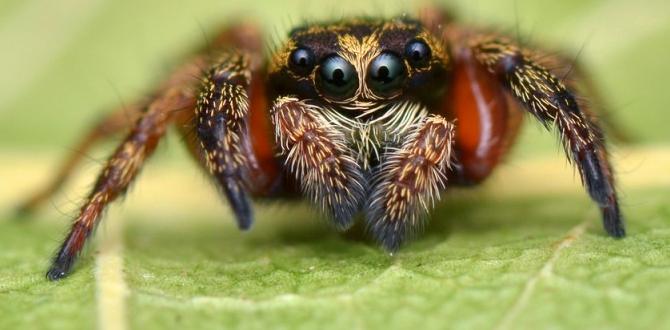
Some spiders can be harmful. To keep your garden safe, learn to spot bad species. Black widows and brown recluses are two to watch out for. They can bite and cause health issues.
Here are ways to manage unwanted spiders:
- Remove clutter where they hide.
- Seal cracks in walls and windows.
- Use natural repellents like peppermint oil.
These steps help protect your garden from harm while keeping helpful spiders around.
How can I tell if a spider is harmful?
To identify a harmful spider, look for its unique features. Black widows have shiny black bodies and red hourglass marks. Brown recluses have a violin shape on their back. If you’re unsure, ask an expert!
Case Studies: Spiders in Successful Gardens
Examples of gardens that thrive with spider presence. Testimonials from gardeners on the benefits observed.
Many gardens do well with spiders around. For instance, a study showed that gardens with spiders had fewer pests. This led to healthier plants. Gardeners share good stories, too! They found that spiders eat harmful insects like aphids and caterpillars. Here are some thoughts from happy gardeners:
- Cleaner Plants: “My flowers are brighter thanks to the spiders!”
- No More Pests: “I rarely see aphids now!”
- More Visitors: “Birds and butterflies love my garden!”
These examples prove spiders can be great helpers in a garden.
Why are spiders beneficial in gardens?
Spiders control pests and keep plants healthy. They are natural predators, helping balance the garden ecosystem.
Conclusion
In conclusion, spiders are great for gardens! They help control pests naturally, reducing the need for chemicals. You can welcome spiders by providing habitats like leaves or rocks. Remember, they are mostly harmless and beneficial. Next time you see a spider, appreciate its role in keeping your garden healthy. Explore more about garden ecosystems to learn how to support these helpful creatures!FAQs
How Do Spiders Contribute To Pest Control In Gardens?Spiders help control pests in gardens by eating insects. They catch bugs like flies and mosquitoes in their webs. This means fewer pests that can harm plants. By keeping these bugs away, spiders help your garden stay healthy. So, spiders are good helpers for keeping our gardens safe!
What Types Of Spiders Are Commonly Found In Gardens, And What Benefits Do They Provide?You can find many types of spiders in gardens, like garden spiders, wolf spiders, and orb-weavers. These spiders help by catching insects, like flies and mosquitoes. This keeps your garden healthy and makes it easier for plants to grow. Spiders are great helpers that balance nature, so we should appreciate them!
Are There Any Specific Spider Species That Gardeners Should Encourage Or Discourage?Gardeners should encourage friendly spiders, like jumping spiders and garden spiders. They eat pests that harm plants. You might want to discourage harmful spiders, like black widows, which can be dangerous. Keeping your garden safe means helping the good spiders and staying away from the bad ones!
How Can Gardeners Create An Environment That Supports Beneficial Spider Populations?To help beneficial spiders in your garden, you can do a few simple things. Plant lots of flowers and grasses. They give spiders places to hide and find food. Avoid using chemicals or pesticides, as these can hurt spiders. Keep some messy areas, like leaf piles, where spiders can make their homes.
What Are The Potential Risks Of Having Spiders In The Garden, And How Can They Be Mitigated?Having spiders in the garden can be risky because some can bite if they feel scared. Their webs can also catch helpful bugs we want to keep. To stay safe, we can look for spiders and gently move them outside. Keeping the garden clean helps too, as it reduces places for spiders to hide. Always wash your hands after gardening to avoid bites!






